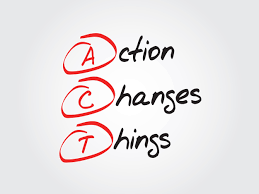AnxietyPath is a safe community environment supported by professional counselors. We are a free self help destination to receive support and guidance for recovery from anxiety and phobias
Action Is Required For Anxiety Recovery
 When I was working on recovery each week I would meet my counselor, and each week her first question was, “What did you do this week”? She wasn’t worried about how I felt, she was interested in my Action!
When I was working on recovery each week I would meet my counselor, and each week her first question was, “What did you do this week”? She wasn’t worried about how I felt, she was interested in my Action!
I first met my counselor in an 8-week workshop at the Anxiety & Phobia Treatment Center. (now its run as a 9-week program) The group would meet once a week at the center. We would also meet privately with our counselor one-on-one once a week between meetings. Our counselor helped us learn to desensitize to our specific trigger(s) and help design a “practice plan” for the week ahead.
I entered the program to work specifically on my driving & bridge phobias. Although what I quickly found out is that all of the various manifestations of my anxiety disorders were all interconnected and that the act of recovery would include all of them.
Beginning Counseling
In the beginning of my time with my counselor, I would start our meeting sessions off with describing how I felt. I would explain each emotion and panic attack in full detail. I was so focused and concerned with how I felt, that is all I wanted to talk about.
My counselor would sit there and listen to me describe each emotion I had in great detail. Every once in a while she would throw the question in, “But then what did you do”? After a while, I finally learned that recovery had nothing to do with how I felt, but rather the action I took to create the change I desired.
You see recovery is a change in our behavior. It is behavior modification. The only way we can effectively change our behavior is through action; through literally changing our behavior and creating new conditioning, new “habits” and most importantly new responses to our anxiety-driven thoughts.
Taking Action
In the beginning, the action that I took was simply to notice when my anxiety started. At the time I started recovery I had a very bad habit of hitting the snooze button on my alarm clock. The alarm would go off, and I would hit the snooze button two or three times. All this did was give me time to sit with my thoughts and I would begin to worry about what the rest of the day held in store for me. In just that little amount of time, I was able to run my anxiety up so high that I was already very anxious just getting out of bed. On top of that, when I finally got out of bed I was now running late, so I felt rushed on top of being anxious. It was just a bad way to start my morning.
So the action I took at that time was to stop hitting the snooze button. I got out of bed with less anxiety, and not feeling rushed.
Mental & Physical Tools
The other action that I implemented was using tools. Mental & physical tools. I was taught to practice these tools once or twice daily when I had little or no anxiety, but I also put them to use first thing in the morning. As soon as I got moving, I started using tools. I have written a lot about tools, and I will write another post soon regarding them, but keep in mind that the single most important action you can take is the practice & implementation of the tools.
Now keep in mind that when I started these things my emotions didn’t necessarily change instantly. As a matter of fact, in the beginning, my anxiety didn’t seem to change at all. I was still very anxious and struggling to just get through the day.
But each day I continued to do the things I could, regardless of how small they may have seemed at the time. Each day I put effort into action! From simple changes in my morning routine turned into slight changes throughout the day. Then I started working on self-care efforts, and as time passed changes in my behavior became apparent. I was becoming a new person.
Ongoing Recovery
Toward the end of my time with my counselor when we would meet, I was proud to tell her all the things that I had done that week. It was almost an incentive for me to do more, just so I can tell her how much I did.
Still today I make sure that I put effort into my ongoing recovery each and every day. We never stop changing. The more we pay attention to our physical, mental and emotional health, the more we influence how we change.
I encourage you to keep your recovery a priority in your life. Each day have a plan of action! Use your tools, engage self-care practices and create the change you desire in your own life.
Below are the links for the tools and self-care that work for me.
Never give up! Persistence!
Fear To Fearless
Categories
© 2020 AnxietyPath Powered by G SOUL INC